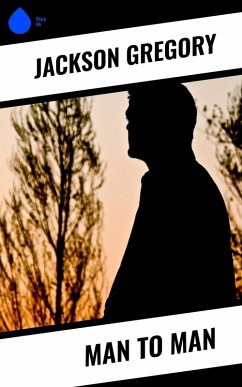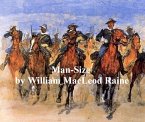In "Man to Man," Jackson Gregory crafts a compelling narrative set against the rugged backdrop of the American West, intertwining themes of masculinity, loyalty, and the human condition. The novel unfolds through rich, vivid imagery and dialogue, drawing readers into the tumultuous lives of its characters as they navigate the complexities of personal relationships and moral dilemmas. Gregory's literary style is marked by a keen attention to detail, bringing to life the era's social dynamics and cultural tensions, ultimately reflecting the broader context of early 20th-century American literature where the ideals of manhood were undergoing profound transformation. Jackson Gregory, an accomplished author known for his vivid storytelling and strong character development, was deeply influenced by his upbringing in the West. His experiences and observations of the contemporary society informed his writing, particularly the exploration of male identity and the psychological underpinnings of friendship and rivalry. Gregory's works frequently address the struggles of individualism against societal expectations, showcasing his nuanced understanding of the human spirit. "Man to Man" is a must-read for those interested in historical narratives that tackle themes of masculinity and identity. Gregory's masterful prose and vivid characterizations invite readers to reflect on the timeless dilemmas faced by men in their personal and social lives. This novel is a poignant exploration that resonates with contemporary conversations about identity and connection.
Dieser Download kann aus rechtlichen Gründen nur mit Rechnungsadresse in A, B, BG, CY, CZ, D, DK, EW, E, FIN, F, GR, HR, H, IRL, I, LT, L, LR, M, NL, PL, P, R, S, SLO, SK ausgeliefert werden.









